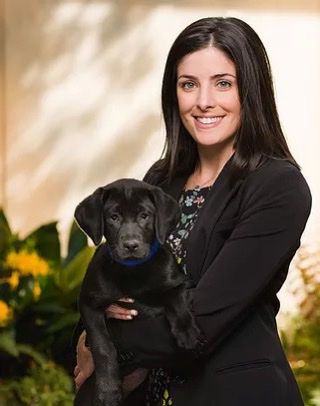

Dr Lucia Lazarowski
Auburn University
Dr Lucia Lazarowski - Research Assistant Professor in the College of Veterinary Medicine at Auburn University and Chief Behavioural Scientist with Auburn's Canine Performance Science Program.
Lucia holds a PHD in Cognitive and Behavioral Sciences and is a Certified Applied Animal Behaviorist (CAAB) through the Animal Behaviour Society.
She has been working in cognition research for over 15 years, primarily focusing on improving the selection, training, performance and welfare of detection dogs.
In addition to her research, Dr. Lazarowski teaches courses in behavioral psychology and veterinary ethology at Auburn University.


Bart Rogers
Auburn University
Bart Rogers - Chief Canine Instructor of Auburn University's Canine Performance Sciences breeding program.
Bart oversees the development and training of candidate detection dogs in the program. As well as behavioral evaluations and selection of breeders.
He has been working with dogs professionally for over 15 years, and has trained dogs for various roles, including chemical and biological detection, wildlife conservation and service and therapy work.
Bart has co-authored over 10 scientific publications including research articles and book chapters, on detection dog training and behavior. He has been published in working dog magazines and is frequently invited to speak at national and international working dog conferences and seminars.


Dr Adee Schoon
Adee Schoon began her work with police human scent dogs in the Netherlands in 1991 and obtained
her PhD in 1997. Since then, her work has included research projects in explosive, drug, biological fluids, human remains, electronic storage devices, corrosion, cancer and wildlife detection, puppy selection and training programs, and teaching about odours, scent perception, learning and training.
She publishes regularly and participates in a number of international governmental working groups/organizations on detection dogs. In 2010, she left Leiden University and started Animal Detection Consultancy, with a mission to use, improve and expand the olfactory detection capabilities of animal/handler teams through focused research, training and advice, primarily in the field of human security and welfare. She published her ideas in ‘Training dogs to use their nose – a blueprint’ in 2021 to commemorate 30 years of experience.


Dr Emily Bray
Dr. Emily Bray is an Assistant Professor in the College of Veterinary Medicine at the University of Arizona, where she directs the Behavioral Research Across Years (BRAY) Lab. She earned her PhD in Psychology from the University of Pennsylvania and prior to starting her current position, she was a postdoctoral scholar working jointly with the Arizona Canine Cognition Center and Canine Companions, the nation’s largest provider of service dogs for people with disabilities. Over the past decade, she has developed and implemented cognitive tasks in hundreds of dogs from both pet and working dog populations, forming the basis for projects ranging in scope from early maternal care to cognitive aging to understanding the contribution of genetics to behavioral traits. By building a comprehensive understanding of dog behavioral and cognitive health, she aims to better understand the factors that contribute to working dog success, ultimately enhancing both canine and human welfare.


Stèphan Petersen
Stèphan doesn’t just work with police dogs — he shapes the future of the profession behind them. With over 15 years of hands-on experience as a handler, instructor, and project leader, he understands the field from the ground up. But where others see routine, he sees possibility: to innovate, to connect, to raise the bar.
As Chief Learning Officer in the Dutch Police Dog Domain, Stèphan brings together practitioners, educators, and leaders to build a culture of learning that lasts. One that’s grounded in real-world experience, yet constantly evolving. In his vision, the wellbeing of the dogs and the craftsmanship of their working dog professionals are inseparable — and essential.
He spearheaded a nationally supported project to define professional standards for canine policing. His method? Co-creation with the field, practice-based research, and storytelling that makes knowledge stick. The result: change that doesn’t stay on paper, but lives in daily practice.
Forward Thinker | Connector | Gamechanger



Mike Veale
Founder & President, Global Conservation Force
Mike Veale is a dedicated wildlife conservationist and the founder of Global Conservation Force (GCF), a nonprofit organization committed to protecting endangered species through frontline anti-poaching efforts, conservation education, and community engagement. With a background in zoology, law enforcement training, and field conservation, Mike has spent over a decade working in some of the world’s most challenging environments, focusing on species such as rhinos, elephants, and pangolins.
Under his leadership, GCF has developed and supported ranger training programs, K9 anti-poaching units, and community-based conservation initiatives across Africa, Asia, and Latin America. Mike is known for bridging the gap between wildlife conservation and tactical field operations, bringing innovative, collaborative solutions to the fight against wildlife trafficking and habitat loss.
A passionate educator and public speaker, Mike regularly shares his expertise with audiences around the world, inspiring action and awareness for the future of global biodiversity.
Wildlife Conservationist | Anti-Poaching Specialist | Educator

